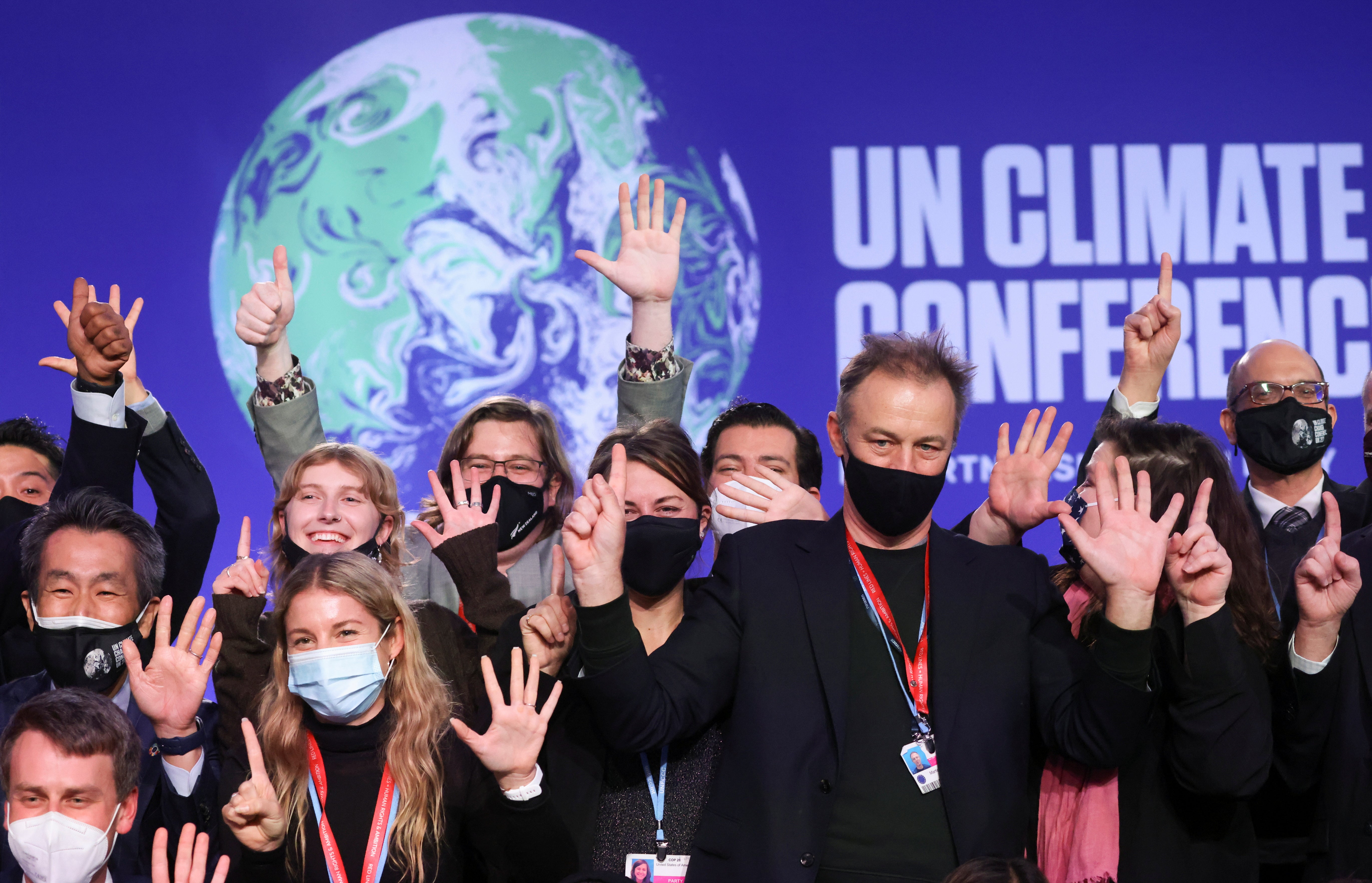Has the Cop26 deal achieved what it needed to?
Analysis: The Glasgow Climate Pact has received a middling grade from experts after days of negotiations

Your support helps us to tell the story
From reproductive rights to climate change to Big Tech, The Independent is on the ground when the story is developing. Whether it's investigating the financials of Elon Musk's pro-Trump PAC or producing our latest documentary, 'The A Word', which shines a light on the American women fighting for reproductive rights, we know how important it is to parse out the facts from the messaging.
At such a critical moment in US history, we need reporters on the ground. Your donation allows us to keep sending journalists to speak to both sides of the story.
The Independent is trusted by Americans across the entire political spectrum. And unlike many other quality news outlets, we choose not to lock Americans out of our reporting and analysis with paywalls. We believe quality journalism should be available to everyone, paid for by those who can afford it.
Your support makes all the difference.Cop26 has finally concluded with the agreement of the Glasgow Climate Pact.
The intense negotiations among 197 nations – with the aim of preventing catastrophic global warming – went down to the wire with a lengthy, 24-hour delay and then last-minute interventions to water down language on coal by India and China.
Following the conclusion, UN secretary general Antonio Guterres said it had been an “extremely challenging conference”.
Cop26 was postponed for a year due to the Covid-19 pandemic and participants have faced issues with access due to vaccine requirements and travel restrictions.
Mr Guterres called the approved texts a “compromise”.
“They take important steps, but unfortunately the collective political will was not enough to overcome some deep contradictions,” he said.
He then reiterated his remarks from beginning of Cop26. “We must accelerate action to keep the 1.5 degree goal alive,” he said.
“We are still knocking on the door of climate catastrophe. It is time to go into emergency mode – or our chance of reaching net zero will itself be zero.”
Whether the Glasgow pact achieves what Cop26 set out to do, has received a middling grade.
The agreement does not close the gap to the aspirational 1.5C of the Paris deal – but then, few expected that it would.
Rather it keeps “alive” that possibility. Helen Mountford, vice president of climate and economics at World Resources Institute, said that the purpose of the agreement in Glasgow was to put in place firm processes to close the gap to 1.5C.
One significant achievement of the Glasgow deal was that countries were “requested” (strong language by UN standards) to set more ambitious 2030 emissions-reduction targets, and return before the end of 2022 with plans for how they would go about this. This is a step up from the previous date of 2025.
Recent analysis shows that countries’ current 2030 plans would result in 2.4C of global heating by 2100, far above the 1.5C aspiration of Paris, and the “well below” 2C it set as the safe outer limit.
Whether countries will work towards these tougher plans remains to be seen.
“We will really know if it has succeeded when we come back next year and see what countries have done. It’s really about what they do this coming Monday morning,” Ms Mountford said early on Saturday.
The UN chief has also said that climate promises “ring hollow” when fossil fuel subsidies are still in existence.
The value of fossil fuel subsidies globally was around $6 trillion last year, according to International Monetary Fund.
The final Glasgow pact did not end the measures that artificially lower the cost of oil, gas and coal but instead called for “accelerating efforts” to phase out “inefficient” subsidies.
A global call for ending coal use also fell short. In a sudden, last-minute move, China and India intervened to water down language in the final text: meaning that a call to “phase out” unabated coal power was changed to “phase down”.
The text also noted with “deep regret” that developing countries had not made good on its $100bn finance commitment, made a decade ago, for developing and vulnerable countries to help them adapt to ever-worsening climate extremes.
That goal remains far off. OECD analysis found last month that $100bn will not be reached until 2023. The amount was supposed to have been reached in 2020 and sustained to 2025.
Some gains had been made at Cop26 on the greater recognition of “loss and damage”.
“Loss refers to things that are lost for ever and cannot be brought back, such as human lives or species loss, while damage refers to things that are damaged, but can be repaired or restored, such as roads or embankments,” Saleemul Huq, a senior fellow at the International Institute for Environment and Development, previously told Carbon Brief.
However the idea reportedly received strong pushback from the US and European Union and did not feature in the final Glasgow Climate Pact.
Join our commenting forum
Join thought-provoking conversations, follow other Independent readers and see their replies
Comments